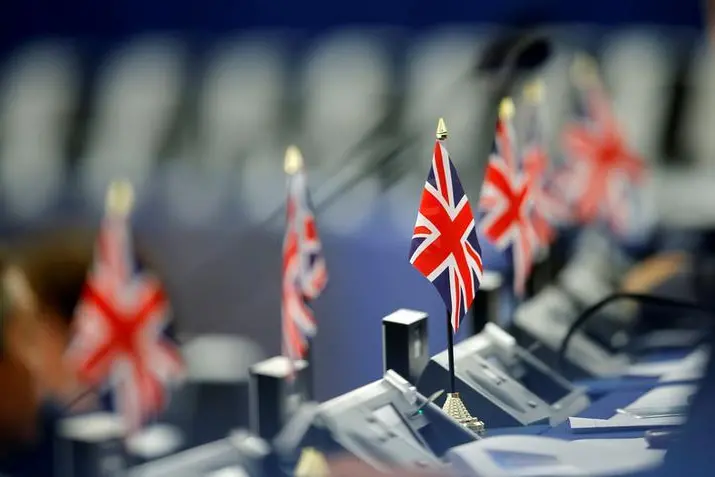PHOTO
In the wake of the COVID-19 pandemic and the fragilities in the global economy that it has highlighted, the Western world has scarcely recovered from the financial crisis of 2007-08 and is still reeling from the political upheaval in the US in the latter half of the past decade. There is now a shared consensus among the leaders of the G7 nations under the presidency of the UK that laissez-faire free markets do not deliver the kind of economic outcomes — the kind of economic and political stability and resilience — that we need in the face of the looming climate crisis.
The ideology of the Washington consensus has produced systemic economic inequality within countries, which has undermined the legitimacy of even long-standing democratic institutions in some of the most entrenched democratic cultures in the world. It has contributed to critical supply chains shifting to cheaper offshore locations, leaving us with systemic shortages of medical supplies in the midst of the worst public health crisis in a century. And they have mostly negated the progress on climate goals made by some Western countries by allowing the most damaging practices to be ideologically justified and shifted to other parts of the world.
It is, therefore, no surprise that the UK government’s focus for this year’s G7 was “resilience.” The most significant shift away from the Washington consensus is in the shared understanding that building resilience requires active, state-led governance, both domestically and, more importantly, in the international arena. The fundamental direction of travel for the G7 is shifting away from the pursuit of unbridled economic growth through deregulated globalization and toward managed cooperation to ensure economic stability, the integrity of supply chains and the international management of health and environmental crises.
What this means in practice has been highlighted by the pandemic and it will remain evident as we collectively grapple with climate challenges. The only great success story for the West emerging over the past decade has been its success at developing and deploying COVID-19 vaccines. Western-developed vaccines have the highest clinical efficacy and, due to the transparent and rigorous testing regimes in which they were developed and approved, they also have the highest levels of trust globally.
But while these vaccines carry the names of private Western companies, it is those same Western governments that have blundered their rigidly orthodox approach to intellectual property regarding the vaccines from a global public health point of view. It remains the case that all of the Western-developed vaccines, relying on a myriad of different technologies, have only been possible due to decades of state investment in fundamental research and have only been manufactured as quickly and at the scale they were because governments intervened to support the manufacturers with de facto blank checks. Moreover, the most effective vaccination campaigns among comparable Western countries have occurred in those countries where the state retained an active role in coordinating and managing the deployment of the vaccines, while also subsidizing the costs of inoculation.
Free market competition absolutely played a role in the West successfully developing a number of different vaccines, optimal in different kinds of deployments. And private companies absolutely enabled the scaling up of vaccine production to meet the needs of the West. But neither the myriad technologies underpinning the vaccines nor the astonishing deployment effectiveness seen in most Western countries would have been possible without the state playing the central role of coordinating efforts toward the public good.
Conversely, the most egregious failures to respond to the public health demands of the pandemic have also occurred where states proved unwilling to act. Most notably, in the unequal distribution of vaccines toward rich and globally powerful countries, while even at the end of 2021 many poorer countries have yet to see any vaccine doses available at all. And also in the health outcomes of countries, both vaccine-rich and vaccine-poor, where the political leadership refused to impose precautionary health measures like social distancing and compulsory mask-wearing for political reasons.
The UK is looking to learn and apply these lessons, which are so palpably relevant as we witness the G7 and the 2021 UN Climate Change Conference so that we can apply them to broader economic and political needs. It is a case of placing empiricism above ideology, and that is remarkable. Above all, the UK is applying these G7 lessons in dealing with climate change. Many solutions to the existential threat posed by climate change will be market-based, but the private sector and the markets they operate in must be marshaled toward wider, more sustainable and more inclusive goals.
Governments must ensure that the supply chains critical to the green transition are diversified and reliable, and particularly that digital information infrastructure is secure and resilient against both human and natural threats. Governments must ensure adequate levels of investment to achieve the green transition in good time and that the global push to achieve this is not undermined by countries cheating at and undermining the global rules of trade and labor standards. Governments must ensure that the dividends of the green transition are distributed equitably among all those who labor toward it, both within societies and across borders.
It does not seem likely that democracy and international cooperation can survive another polarization between the wealthy and the poor of the kind we have seen under the Washington consensus economic orthodoxy.
- Dr. Azeem Ibrahim is the Director of Special Initiatives at the Newlines Institute for Strategy and Policy in Washington D.C. and author of ‘The Rohingyas: Inside Myanmar’s Genocide’ (Hurst, 2017). Twitter: @AzeemIbrahim
Copyright: Arab News © 2021 All rights reserved. Provided by SyndiGate Media Inc. (Syndigate.info).





















